Commentator
China's Protests, Iran's Protests, Russia's Non-Protests, Time For Biden To Retire
Dear Friends,
I’m sharing the weekly ‘Commentator’ pieces - on news and politics. These have three purposes: 1.to identify journalists who are doing genuinely good work from whatever country and in whatever place on the political spectrum; 2.to riff on the news of the week - these posts tend to be more opinionated, emotional, and exploratory than is ‘permissible’ in standard journalism; 3.to attempt to keep some sort of prioritization of the stories that actually matter as opposed to whatever happens to be in a news cycle at any given time.
I’ve turned on the option to upgrade to paid subscriptions for Castalia. I’m shy about asking but hope you will consider the option. I’m not putting anything on the site behind a paywall but may start adding features for paid subscribers - depending, honestly, on how much interest there is.
All best,
Sam
CHINA’S PROTESTS - AND THE ZERO-COVID CHARADE
If you haven’t already, please do watch this Twitter video of the ‘Shanghai Flower Boy’ being led away by police. It pairs not at all badly with the Tiananmen photograph of the man with the shopping bags in front of the tank column.
That photograph is sort of lodged in my memory as a symbol of defiance - of hope prevailing over totalitarianism. But that’s really not what it stands for. It stands for the ability of totalitarianism to grind down freedom. Nobody knows what became of the ‘Tank Man’ after he was led away by officials. One assumes nothing good. Same is likely to be the case for the ‘Shanghai Flower Boy.’ The critical moment is at 0:35. The video up till then has been a scene of peaceful protest - flowers and shouting, the local cops looking as if they’re not particularly paying attention - and then, quietly, a group of cops, a couple of them plainclothes, surround the protestor and pounce on him. The protestor is uncowed - he keeps shouting right up until the moment his head is tucked into the police car - but, needless to say, none of the hundreds of people documenting the scene with cell phone cameras intervene on his behalf.
There are many lessons to draw from a video like this and from the eruption of protest against China’s zero-Covid policy and against the CCP itself.
Lesson number one is that the Chinese people are not as broken as might be expected given the ascendancy and brutality of the regime. I really am honestly amazed at how widespread and how outspoken the protests have been. “I’m here because I love my country but I don’t love my government,” a protestor in Shanghai told Reuters, recklessly giving his name. Protestors shouted, “We don’t want masks, we want freedom. We don’t want COVID tests, we want freedom,” and some demonstrators “went so far as to call for the Communist Party and its leader, Xi Jinping, to step down,” as The New York Times, clearly shocked itself, reported.
These protests are as inspiring as the Tank Man was in 1989 - a testament to human courage and resilience - precisely because the protests are likely to lead nowhere and to be brutally suppressed. Lesson number two - as the Chinese people are discovering and are courageously articulating but which hasn’t quite sunk in outside of China - is that the zero-Covid policy really has nothing to do with Covid and is all about an extreme form of command-and-control. As the Shanghai protestor told Reuters, “Our Covid-19 policy is a game and is not based on science or reality.” Westerners continue to believe that ‘the market’ calls the shots, that the zero-Covid policy has been an aberration and that, given China’s loss of 3% of growth as a result of the policy, the CCP is bound to reopen the economy sooner rather than later. “China has this boot on the neck of economic activity, and we’re past the point where the boot made sense,” said Jude Blanchette, an expert on China at the Center for Strategic and International Studies. But, of course, the boot does make sense if the priority - as the priority tends to be for authoritarian regimes - is not economics at all but power for its own sake. Everybody was caught a bit flat-footed by Putin’s invasion of Ukraine because of a free-market gospel holding that Putin couldn’t possibly incur the wrath of the international community if that meant punishing sanctions and the collapse of Russia’s economy, but the collective memory of leaders like Putin and Xi is the Cold War; the sense that a ‘closed’ economic system works perfectly well as far as their purposes are concerned; and that strict hierarchical control is of far greater value than a point of economic growth here or there.
The next lesson is that authoritarianism creates its own self-fulfilling loops. The suppression of independent journalism really does work; and it works not just in a domestic context but internationally. It’s only in the last day or two that the mainstream Western press has picked up on the truly major story of China’s protests - and that’s coming after two years of really negligent reporting on China’s Covid lockdowns. (And, already, I can sense that the story of the protests is slipping off the front pages.) The overriding reason for this is simply that the CCP makes it difficult for journalists to work in China; and the response by Western media has essentially been to leave China alone and to report on difficult stories only when the Chinese people protest so vigorously (either on social media or on the streets) that it becomes embarrassing for Western media outlets to not pick up on the story. The point I’m making here isn’t so much about complicity as about the mechanics of journalism: it’s very difficult to report from the ground on, for instance, Iran’s protests; and the result is that Western media just doesn’t really cover that story either.
But what is embarrassing - and a kind of complicity - is the facility with which the CCP has played on the West’s panicked response to Covid in order to mute criticism of lockdowns and of the ‘zero-Covid’ policy. It’s really painful to read the mainstream media’s coverage of the protests which tend to include a mealy-mouthed defense of the underlying logic of zero-Covid. The New York Times writes, “China’s approach won praise during the beginning of the pandemic, and there is no doubt it has saved lives. But now that approach looks increasingly outdated.” The Washington Post writes, “For months, ‘zero-Covid’ worked. Cases were nearly nonexistent.” The Guardian outdoes everybody by writing, “The zero-Covid policy is damaging the economy, but to reverse it risks loss of life, economic damage and the emergence of new variants.” Somehow it’s just not sinking in what happened: molecular evolution, not epidemiology, took care of the pandemic for us. If lockdowns were ever justifiable (a debatable proposition), they no longer were once Omicron became the dominant Covid variant. China has managed to convince credulous Westerners that continued lockdowns are an extreme-but-understandable public health measure. They’re not. They’re a trick to institute a really-unprecedented type of authoritarian control under the guise of concern for public health.
I do find it fitting that protests erupted as the result of a fire in Urumqi, the capital of Xinjiang. As a terrific Common Sense piece put it last week, China’s suppression of civil society in Xinjiang was the “testing ground for a much more ambitious…campaign” featuring surveillance and extreme methods of population control. Everything here is textbook authoritarianism - carry out a trial program against a population that nobody cares very much about (Xinjiang’s Uighur Muslims) and then apply those techniques on a larger scale. It’s part of the pathos of ‘Flower Boy’ that the street he chose for his likely-suicidal protest was Shanghai’s ‘Urumqi Road’ - a testament (for those willing to pay attention) of how inter-connected everything in politics always is.
IRAN’S PROTESTS - AND VIOLENCE IN KURDISTAN
I’ve been waiting in vain for decent reporting on Iran’s protests - the international press has largely used Iran’s soccer team, silent during the national anthem, as a surrogate for the protestors who are actually risking their lives all across the country. The press’ relative silence is understandable enough - it really is difficult to cover conditions on the ground in Iran - and this team-reported piece by Der Spiegel deserves particular credit for talking to Iranian protestors and working hard to form a picture of what’s happening.
The sense is that the regime’s crackdown has been more brutal than is widely understood; and Iran closer to a state of civil war. Over the past week, the news media has really buried the lede, which is a set of massacres in Kurdistan - “the regime’s forces were seen shooting directly at locals,” as Eurasia Review somewhat demurely put it, “and activists reported that security units were firing live bullets and tear gas into people’s homes.” (There’s a video here that more than corroborates the ‘activists’ reports.’)
Der Spiegel connected with a paramedic, ‘Ardalan,’ in the Kurdish part of the country, who reported, "I don’t want to use the term 'state of war’ because in a war, both sides are armed. But we only have bricks that we pile up to form barricades, while the other side is heavily armed." Various reports from Kurdistan emphasized the lethality of the regime’s response - the earlier buckshot and teargas giving way to snipers and ‘dushka’ machine guns. As ‘Anoush,’ a teacher from Tehran, told Der Spiegel, "We are screaming from the windows, even if security forces are opening fire more frequently.”
Der Spiegel has been very careful to caveat its own reportage - pointing out that “Ardalan’s accounts cannot be verified,” that “it is difficult to determine where the demonstrations are taking place and how large they are since the internet has been blocked in many parts of the country.” The picture that is painted is of protests that are widespread, determined, but to some extent subterranean. “There are fewer mass protests, but more flashmobs,” as Der Spiegel reports. “Small groups from a specific district, sometimes even just a single residential building, suddenly emerge and begin shouting: ‘Down with the dictatorship!,’ filming the event and then melting away.”
There is still the sense that meaningful change is impossible - that the regime is simply too powerful, the protestors unarmed and scattered. But, as with China’s equally hopeless-seeming protests, it is never a good idea to underestimate people who are effectively willing to sacrifice themselves for the sake of their beliefs. In a dramatic act last week - stunningly, not picked up by the international press - the niece of Supreme Leader Khamenei, Farida Moradkhani, posted a video condemning the regime. "O free people, be with us and tell your governments to stop supporting this murderous and child-killing regime," said Moradkhani in the video. "This regime is not loyal to any of its religious principles and does not know any rules except force and maintaining power.”
Moradkhani was promptly arrested, but that kind of courage is deeply meaningful. The Iran experts assembled by Der Spiegel are bold enough to predict that the protests will lead, in the order of things, to the collapse of the regime. "The undoing of the Iranian regime has begun,” says Afshon Ostovar of the Naval Post Graduate School. “The regime’s legitimacy is eroding. They are no longer recognized by their own people,” says Reinhard Schulze of the University of Bern.
In any case, if the regime does fall, the critical events will likely occur well out of sight of the media’s eye - in remote regions like Kurdistan and Balochistan where protests cross into violent insurrections; among the truckers, who are days into a strike; among the ‘flash mob’ protestors who are doing their part to win the hearts and minds of the larger population. There isn’t an unbelievable amount that the outside world can do, but it is important to pay attention to Iran and to signal as much as possible that the world stands with the Iranian people against the regime. Biden - who is always a bit slow-on-the-uptake about these things - took a step in the wrong direction by attempting to continue negotiations with the Iranian regime over the revived nuclear agreement. Moradkhani - Khamenei’s niece - seemed to be incensed particularly with Biden for not being more on the side of the protestors, saying that “Iranians have been left on their own in the struggle for freedom.” In an op-ed for The Washington Post, Masih Alinejad wrote, “The United States, sadly, remains something of a laggard in this regard: President Biden still hasn’t made a strong and decisive public statement in favor of the protesters.”
I’m not particularly critical of the nuclear deal, as embarked upon by Obama, and I understand Biden’s hesitation to depart from it, but events happen fast in politics. Negotiation with the regime hasn’t worked - and the regime is well on its way to being a junior partner of Russia’s in the invasion of Ukraine. The popular protests across Iran give Western leaders a chance to do what’s right - to isolate the regime; to stand with Iran’s people.
UKRAINE’S GRINDING WAR - AND RUSSIA’S CANNON FODDER
A quick word on the grinding war in Ukraine. No dramatic advances or retreats; both sides likely settling in for winter, which means also settling in for fresh rounds of the artillery-heavy, casualty-heavy warfare that dominated the conflict before the unexpected success of Ukraine’s dual-pronged offensive towards Kherson and out of Kharkiv.
I’m grateful to Thomas Gibbons-Neff, the star reporter of this war, for his piece from Bakhmut, which, as Gibbons-Neff writes, “has become a destructive vortex for both countries’ militaries.” Everything is what you would expect from ‘a war of attrition’ - courage by frontline soldiers, gruesome injuries in the military hospital, a complete absence of any logic or coherence in terms of larger military objectives. On the Ukrainian side, no one can particularly understand Russia’s fixation on Bakhmut. “The intensity of Russia’s attempts to seize the city has baffled military analysts,” writes Gibbons-Neff. Michael Kofman, director of Russian studies at Arlington-based C.N.A., probably explains the Russian advance in Bakhmut as well as anyone can. “The Russian military is still dealing with unrealistic political demands to show progress,” he tells Gibbons-Neff. From the perspective of the entrenched Ukrainians, the Russian advance just looks like a particularly sadistic game of whack-a-mole. “They are just taking a rifle and walking right down like in Soviet times,” said a Ukrainian medic, ‘Smile.’ “He gets killed and the next one comes up the same way.”
Radio Free Europe has a pair of valuable pieces that help to give some context for the indifference of the Russian military towards their own soldiers. This piece - relying on ‘prison sources’ - documents the not-so-subtle Russian techniques for recruiting prisoners to fight in Ukraine. The soft sell part of the recruitment drive, early on, featured Russian military officials offering inmates the possibility of “signing up for a trip to Ukraine.” More recently - with inmate interest waning - the hard sell featured recruiters from the Wagner Group tying inmates to hot radiators for hours and waterboarding them to induce them to ‘volunteer.’
That piece relies on hearsay and anonymous sources, but RFE/RL did manage to visit the Siberian town of Bukachacha and painted an indelible portrait of the mobilization drive for ‘Special Operation Z.’ The RFE/RL reporter finds the town bereft of military-age men - drivers and water-carriers all conscripted; and women and the elderly replacing their men. From the perspective of a mobilization drive, the great advantage of a place like Bukachacha is that nobody is paying very much attention to it. “The authorities forgot about Bukachacha. They remembered it only now, during the mobilization,” says Andrei Epov, a regional bus driver.
In thinking about the Ukraine War and Putin’s Russia, I’ve been haunted by a line from the ultra-nationalist Aleksandr Dugin in his Putin v. Putin: A View From The Right in which he says, “Russia is structured on the principle of vertical symmetry. The one at the top is everything. Call it what you will. It’s Russian; it was and most likely will be.” From a Russian perspective, my sense is that this, really, is what the war in Ukraine is about - a test of Dugin’s thesis. The question becomes whether places like Bukachacha and Buryatia decide that enough is enough, that they cannot bleed out to the center and to the top forever. Dugin was sanguine in assuming the bottom would never really rebel - and, in RFE/RL’s reporting, there is abundant complaint but not a sliver of protest. “See how patriotic we are?” a local resident of Bukachacha says, with apparent sincerity, pointing to the letter Z adorning a bus station. No matter that the bus station isn’t used - the driver has been recruited for the front - Bukachacha remains proudly loyal to the regime.
TIME FOR BIDEN TO RETIRE
So at the moment, in three flash points around the world - China, Iran, Ukraine - an astonishingly large number of people are courageously, inspiredly willing to sacrifice themselves for what I would think of as core democratic values: freedom, the right to self-determination. Almost needless to say, though, in my casual conversations over the past week no one has wanted to talk about any of these subjects. What people want to talk about is Twitter, SBF, the 2024 elections, and the World Cup.
From a political point of view, I don’t find any of these stories all that interesting. “Decent people of all views are deploring the terrible treatment of Twitter’s employees,” writes Yanis Varoufakis in Common Dreams of Musk’s Twitter takeover - but, as far as I can tell, it’s all just standard corporate reshuffling. (And it’s not surprising, in a takeover of a major tech company, for a large number of employees to be laidoff; and for the survivors to be goaded into working harder.) SBF is basically just a standard Ponzi-scheme occurring - not at all surprisingly - in a completely unregulated financial space. The interest there is basically a new turn-of-the-wheel in the ages-old history of scamming - con artistry in the guise of the tech wunderkind and of Effective Altruism. As New York Magazine aptly puts it in their SBF spread, “The virtue was the con.”
But there is a point where the Twitter/SBF stories intersect with 2024 and present an opportunity that the Democrats are - surprise, surprise - almost certain to miss. At the moment Joe Biden is ascendant. The Democrats feel that their victory in the midterms (actually, they lost seats in the House, but no matter) is a vote of confidence in Biden. The New York Times conducted interviews with ‘more than two dozen Democratic elected officials’ and found that, “whatever misgivings some Democrats may harbor about another Biden candidacy, his party is more inclined for now to defer to him than to try to force a frontal clash with a sitting president.” Gavin Newsom, who had been the first one off the mark to threaten to challenge Biden, has backtracked as quickly and as cravenly as possible. He told Politico that he had informed “everyone in the White House, from the chief of staff to the first lady” that he wouldn’t challenge Biden in 2024; and the Politico reporter overheard him talking to Biden on the phone and actually saying, “I’m all in; put me in coach.”
Speaking as a Democrat, this is really bad news for all of us. Biden has always been a weak candidate. He was weak the two times he ran for president and lost. He was a weak candidate in 2020 and was lucky to be pulled through a mediocre Democratic field desperate for a centrist; and then was lucky in the general election that enough voters were tired of Trump. Biden has played his role in history. He stopped Trump - which means that he may well have saved the planet or at least the republic. Now is a great time to go off and collect a Nobel Peace Prize or something. But, instead, he’s been fooled - like the rest of the Democratic pundit class - by a better-than-expected midterm result. In the same New York Times article, David Axelrod reports that Biden has “a little giddyup in his step” - which are ominous words for the rest of us to hear.
The Democrats seem to have fallen into the same ‘coronation trap’ that made the entire field vacate the 2016 primary race to Hillary. The belief is that a contentious primary season would weaken the eventual nominee, but that’s not really what modern electoral history has shown us. The primaries are there to battle-test candidates for a general election - a contentious primary is a perfectly great way to test out the viability of a potential president as well as to keep media attention focused on the party as well as to test out winning messages.
The withdrawal of the opportunistic Newsom types means a sleepy primary season, in which the Democratic faithful lock arms behind Biden and trot out any number of lines to convince themselves that Biden can win - which will seem convincing right up until the moment when his age and lack of charisma are exposed to the general electorate. I have no affection for Newsom, who, even for a politician seems to be at a whole new level of smarm, but in his Politico renunciation he did inadvertently hit on exactly the case for why somebody like him is needed to challenge Biden. “I imagine there’s a reason [Musk] is doing fundraisers for Kevin McCarthy and a reason he’s singing the praises of Ron DeSantis,” said Newsom - and yes! that is a good campaign line! That’s the kind of thing that a young, ambitious presidential hopeful would identify and run on - the idea that Elon Musk and certain of the tech titans have become dangerously right-wing and have too much power and need to be somehow curbed. It is also the kind of messaging that Biden would never come up with or would never have the charisma to articulate.
I’ve been very worried about what I think of as a structural defect in the Democratic Party - the fact that it’s fundamentally a union party that no longer has a union base. Its ability to barely hold its own against genuinely cuckoo Republican candidates is not, actually, an indication of strength. I’ve been convinced that the Democratic Party needs to reinvent itself and needs to do so very quickly, like in the next election cycle. The winning issue, I’m becoming more and more sure, is to run against tech and against social media, to claim that government needs to regulate and in some cases to nationalize tech giants.
I thought that this was like a years-away idea, but now it seems that it’s happening fast and that, unfortunately, Republicans are stealing a march on this issue. Marco Rubio has been introducing legislation to ban TikTok on the grounds that it really is an espionage front for the CCP. In a discouraging Wired article on Capitol Hill’s reaction to SBF, it’s a Republican Senator, Cynthia Lummis, who says what the Dems should be saying: “It’s time. It’s time to regulate. It’s time to put sideboards on this.”
Even the techies have become convinced that their technology has gotten away from them. Earlier this year, Jack Dorsey texted Elon Musk to say, “Twitter should never have been a company. That was the original sin….A new platform is needed.” Those were the texts that started off the whole chain of events of Musk’s acquisition of Twitter. The consensus among the group that accompanied Musk is that Twitter really should be thought about in civics terms - as a ‘public square’ or a ‘utility.’ Musk being Musk, he believes that the right approach to civics is libertarianism - with himself as benevolent overlord - but it’s possible for others to enter into the terms of the debate without accepting Musk’s conclusions.
The bedrock of the Democratic Party is belief in a muscular, compassionate government. Above all, that means breaking monopolies and curbing excess capitalism. I’ve been thinking a great deal recently about the original Progressive movement - about how people like Theodore Roosevelt and Fiorello LaGuardia created a wildly popular consensus around anti-corruption and anti-monopolistic campaigns - and how they did it was by sharply identifying their enemies. The Democrats have a golden opportunity to identify their enemy as tech and social media. It’ll be a winning issue for parents concerned about their children’s addiction to social media and it’ll be a winning issue for populists concerned about Silicon Valley’s exorbitant wealth and influence. If Democrats don’t move on tech, they will be outflanked on it by people like Marco Rubio and Cynthia Lummis. And if Democrats stick to an old, tired generation of leaders, they will never have the flexibility or wherewithal to get in front of an issue like this. Interviewed by Wired about SBF and crypto, Bernie Sanders said, “It’s not really an issue I know a whole lot about.” That may be refreshingly honest but it’s not a great look in an elected official. These are issues that matter and issues that people care about. The whole point of the political process - of the primary season in particular - is to identify dynamic leaders who get it and who are able to get out in front of issues as opposed to ceaselessly reacting to them.


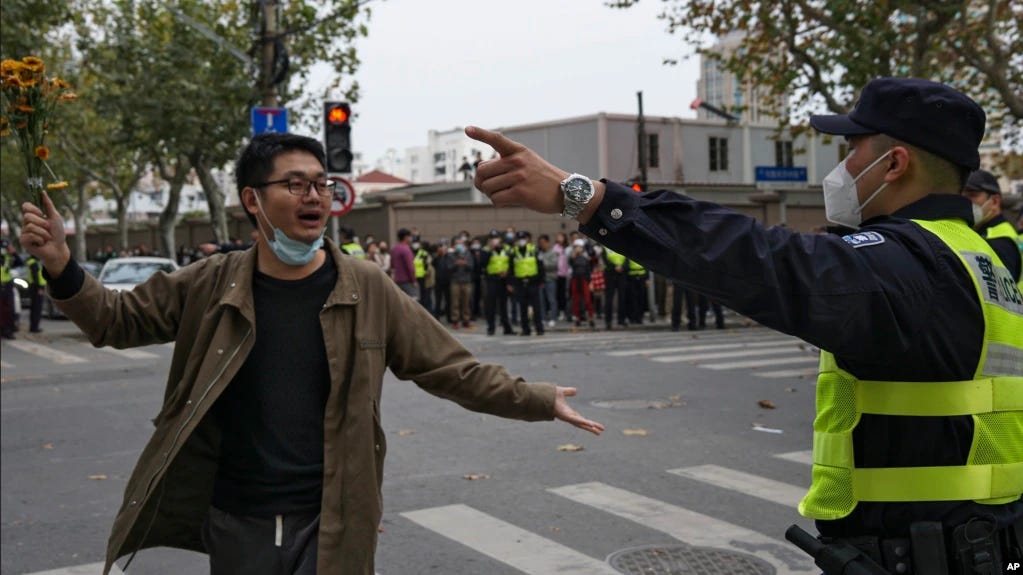
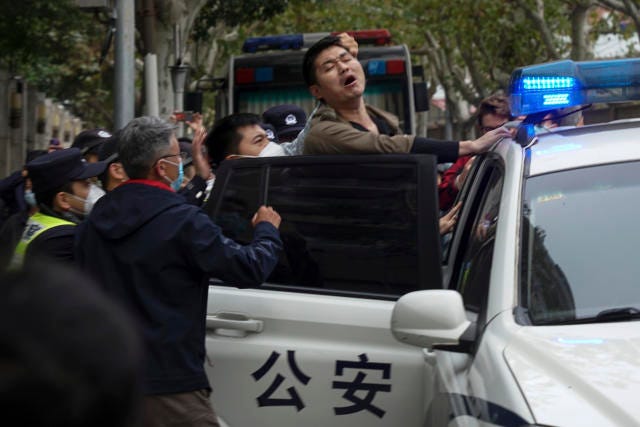
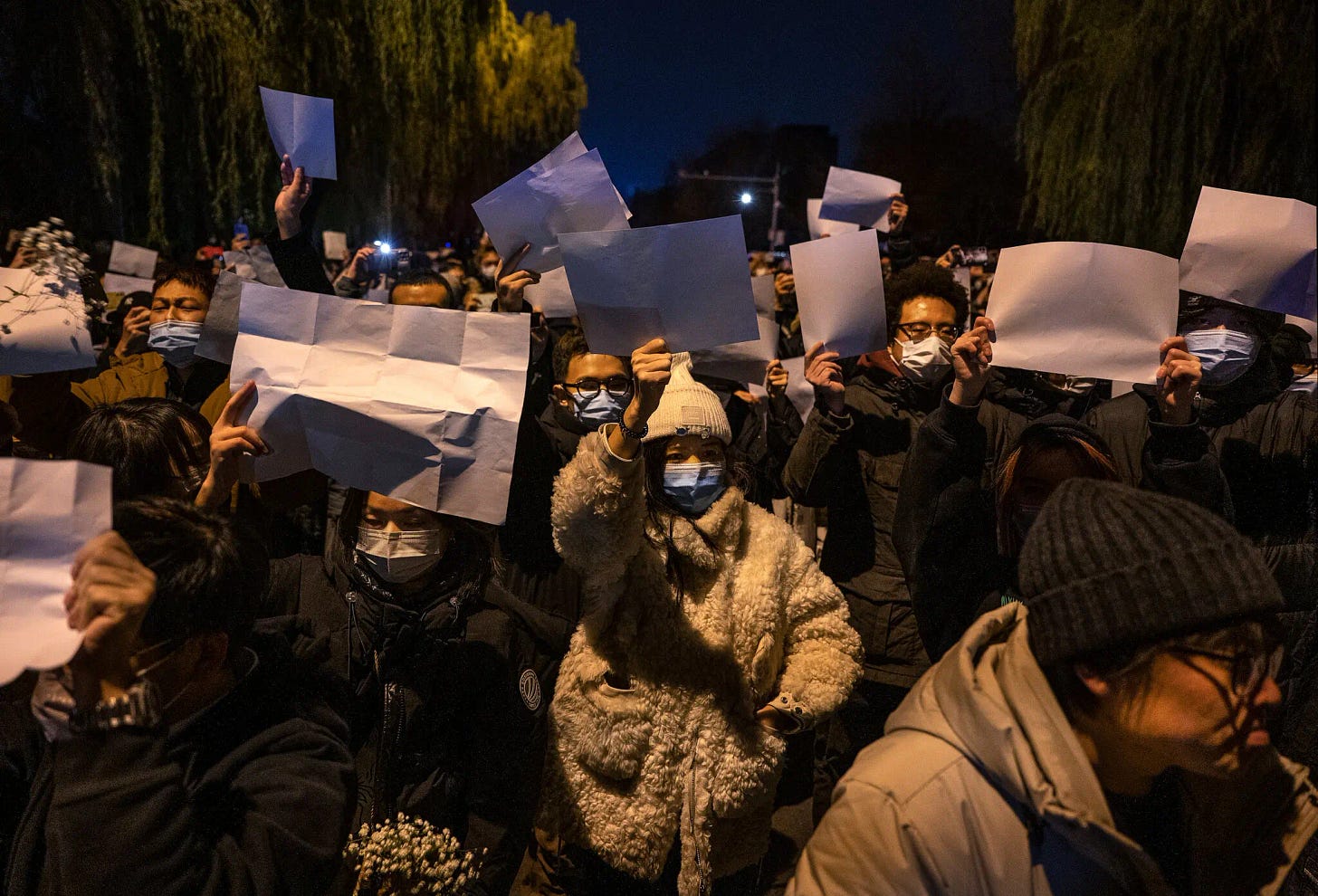

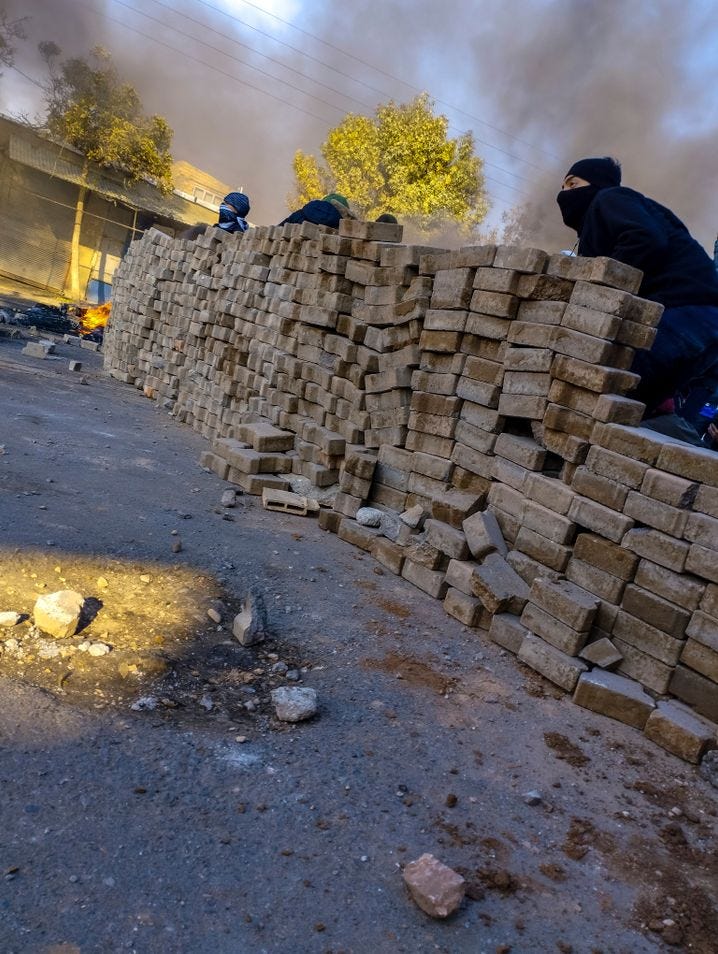

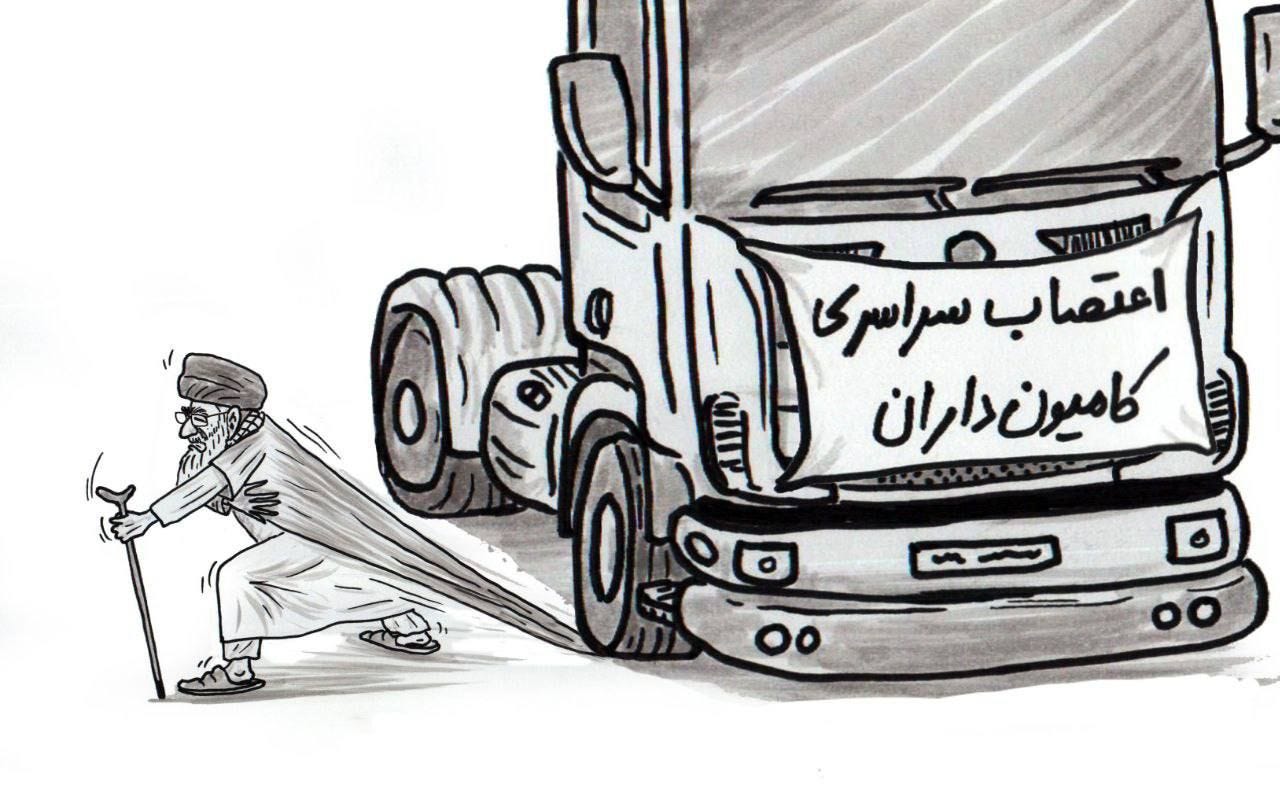
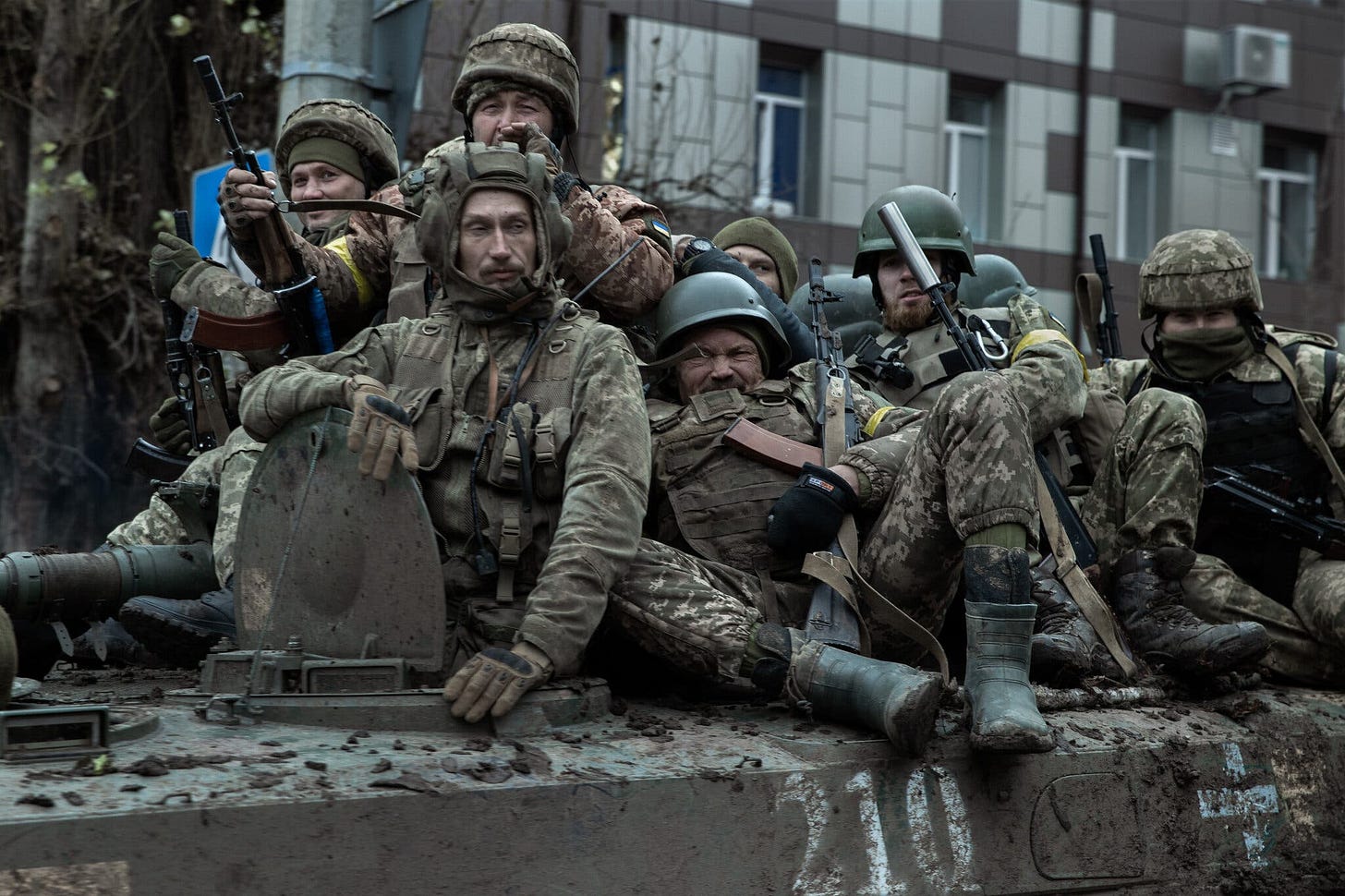
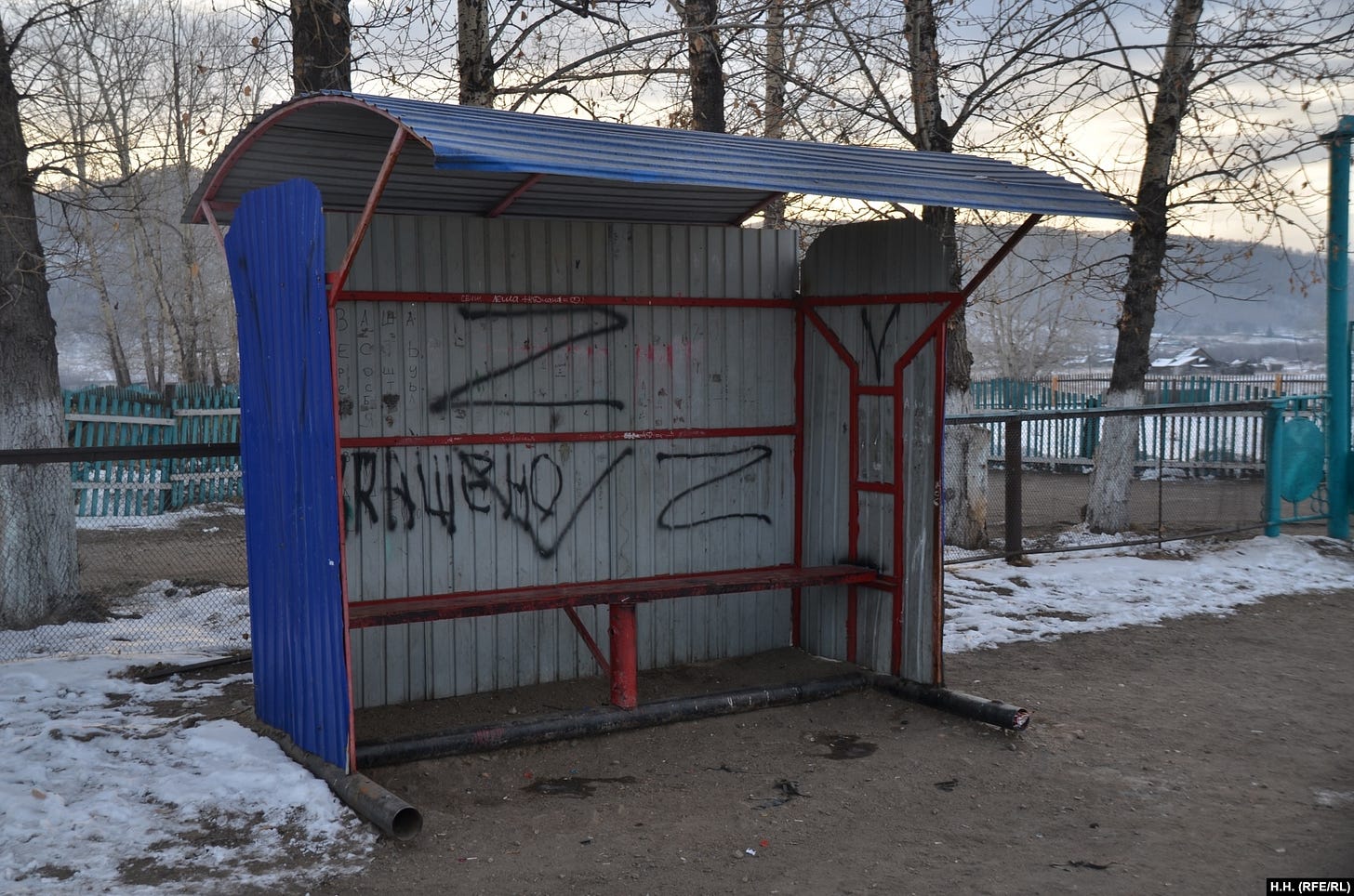
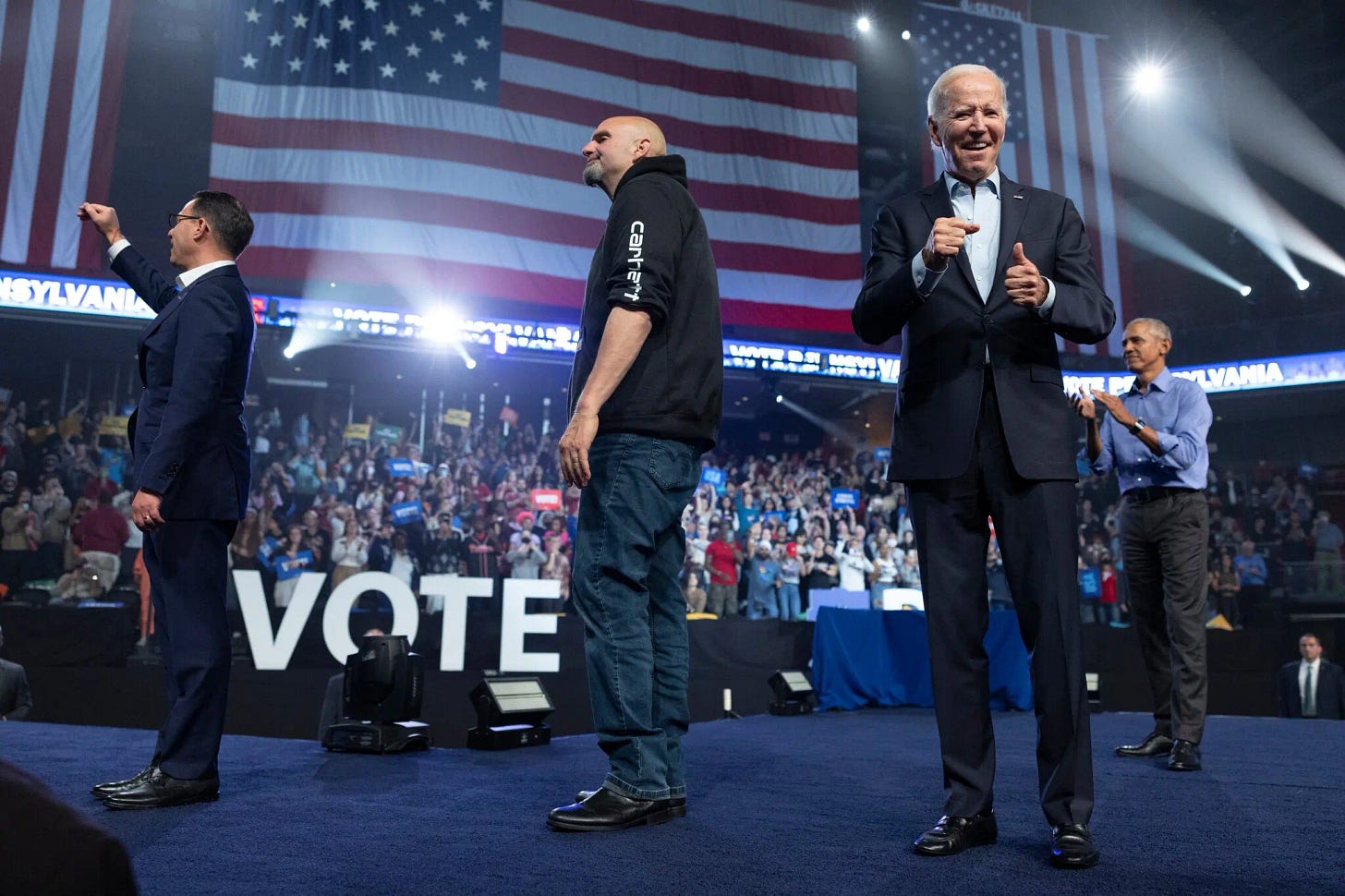

These are such great write-ups. Whenever I think about the zero-COVID policy, it doesn't quite add up, and I wonder if the long-term disabling effects from COVID might be worse than we think. But your theory about the Chinese government wanting lockdowns to increase authoritarian control is a sensible one.
And on media, I hope the scanty coverage of protests isn't because they tend to prompt stock market declines and many media outlets are owned by big corporations. That's cynical, and I don't think reporters would be on board with that, but I've experienced the tension of, "Are you sure we need to run that story?" about an advertiser in the past. (We did run it. But the discussion was eye-opening.)